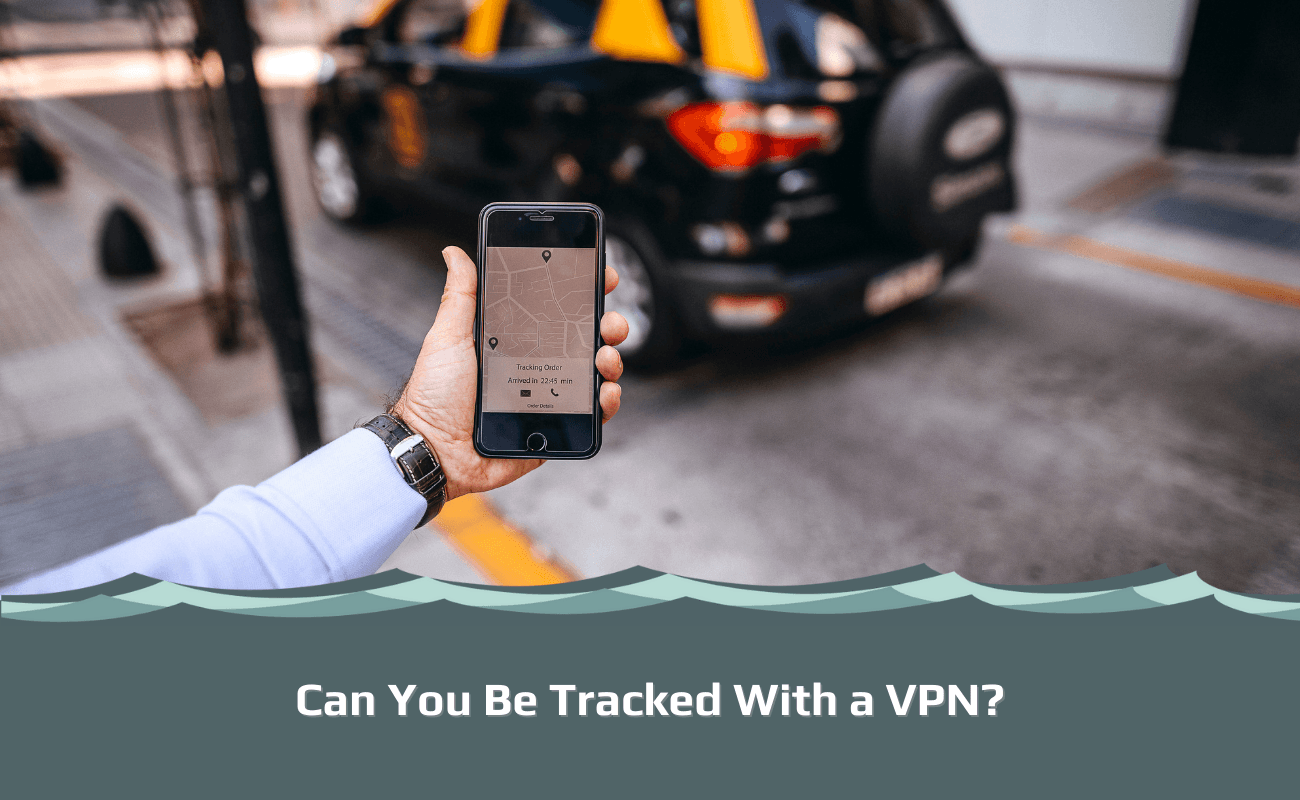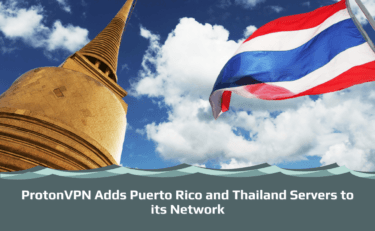
When you use a VPN (Virtual Private Network), your IP address is hidden, and you are assigned an anonymous IP address. This means that you will be able to browse the web without anyone being able to track what sites or pages that you visit or view your search history.
As well as the above, using a VPN blocks any web tracking technologies from collecting information about your browsing habits. However, some people believe that a VPN can only hide one’s identity and not their browser history; this is not true!
There are many benefits of VPN services when it comes to online privacy. Read on to learn more about VPNs as we answer some common questions about VPN usage, including how a VPN can stop trackers from tracing your online footprint!
This article is a part of a series:
Chapter 1: VPN for Dummies
Chapter 2: How to set up a VPN
Chapter 3: Can you be tracked with a VPN?
Chapter 4: Should you be using a VPN?
Chapter 5: Do I need a VPN at home?
Chapter 6: What does a VPN hide?
Chapter 7: How do I know if my VPN is working?
Chapter 8: How does a VPN work?
Chapter 9: What does your ISP see when using a VPN?
Chapter 10: Why does my VPN keep disconnecting?
Chapter 11: Why is my VPN slow?
Chapter 12: How to check your VPN location
Chapter 13: What is a VPN Kill Switch?
Chapter 14: How to cancel a VPN subscription
Chapter 15: What types of encryption does a VPN have?
Chapter 16: How does a VPN protect you?
Chapter 17: What is split tunneling on VPN?
Chapter 18: What is a VPN used for?
Chapter 19: How to hide your IP-address
Chapter 20: The ultimate guide to VPN tunneling
Chapter 21: What is a DNS leak?
How Does a VPN Protect Your Online Privacy?
A Virtual Private Network hides your IP address – which reveals where you are located online at any given moment – so websites cannot track you easily. It also encrypts all of your traffic to hide what sites you visit (or use) for privacy purposes. This means your Internet Service Prover (ISP) or trackers cannot view your internet traffic.
Lastly, using a VPN disguises your VPN traffic when you’re browsing sensitive content like banking accounts or medical records with strong encryption protocols. This ensures confidentiality at all times and guarantees a better overall internet user experience, free from concerns of tracking.
Does a VPN Hide My Browsing Activity?
Yes! Using a VPN hides your browser history by assigning you one of its shared VPN IP addresses. This prevents any tracker from tracing what sites or pages you visit online since the encrypted VPN connection hides your real IP address. It also encrypts your web traffic, meaning that snoopers on public networks cannot see your browsing data.
However, it is important to remember that a VPN does not encrypt the data on all of your devices; if someone has physical access to one of your computers, for example, at work, school, or home, then they can see the stuff you have been looking at online.
Therefore, it is important that VPN users using shared devices clear their browsing history after an internet session.
Can a VPN Protect You From Web Trackers?
A VPN can protect you from web trackers by encrypting your IP address and keeping the websites that you visit private. VPNs block web trackers, giving you protection from cross-site tracking and ad delivery networks that use cookies to follow your activity around the web for marketing purposes.
All of the above means that advertisers will not see which sites you have been visiting online; they can only see an encrypted VPN connection with no personal details attached.
In other words, all of your internet activity becomes untraceable when using a VPN service because it prevents ISPs and government agencies from seeing what sites you have visited.
What Do Web Trackers Do?
Networks use web trackers to follow your activity around the web for marketing purposes. A web tracker will use your IP address to follow your activity online and build a user profile on you.
Web trackers are tools that collect data about how users interact with websites or apps to advertise more effectively or determine what content is most popular. Essentially, web trackers identify who you are and what sites you visit while surfing online.
It’s important not to confuse tracking with hacking. Trackers are completely different from hackers; while a hacker wants to see what you do online to steal your private information, for example, bank details and passwords, trackers are generally looking to collect user data to profit from it.
Why Do Websites Use Tracking Software?
Tracking software is used to gather information for ads, analytics, and business intelligence. Websites may also use tracking programs to collect target demographic data such as location or age to provide more relevant content.
What is Browser Fingerprinting?
Browser fingerprinting is a way of identifying you by your browser and its settings. Browser fingerprinting collects data, including your computer’s screen size, fonts installed, and even the operating system you’re using.
To prevent being identified via browser fingerprinting, you can use a VPN. An encrypted VPN connection will give you more privacy on the web.
Do Internet Service Providers Track Your Web Activity?
Yes, your Internet Service Provider can track and record all of the sites that you visit online. Your ISP may also use web tracking to create personalized ads for users based on their browsing activity.
Moreover, DNS requests can leak, showing your ISP exactly what you get up to online. DNS leaks also allow anyone with your IP address to track your online activities.
Based on the reasons above, using a VPN solution is important and the main way to protect your privacy; it hides your data usage and what websites you are visiting online.
How Does the Government Track My Online Movements?
Government agencies can monitor your activity on the internet by collecting data from various sources, such as ISPs and social media. The government may also collect information that is stored in cookies or web browser caches.
Some providers store usage logs on hard drive servers. If subpoenaed, these VPN providers may have to hand over these logs to the government. For this reason, it is essential to choose a VPN that doesn’t log user traffic and preferably uses RAM-based servers.
Does a VPN Protect You From Hackers?
Yes, a VPN is a great solution for users who are worried about hackers accessing their data. If you travel a lot, then you’ll likely be connecting to public wi-fi networks. These wi-fi hotspots are a haven for snoopers, who spy on other users’ traffic in order to steal sensitive information.
Since a VPN connection encrypts your data and turns it into an indecipherable code, a hacker would be unlikely to decipher it, even if they were to crack the VPN encryption.
Is My IP Address Visible With A VPN?
No! Your public IP address is hidden when you surf the web with a VPN connection, giving you online privacy and anonymity while browsing or downloading content. This is good news since a real IP address can reveal a lot of sensitive information about a user, for example, their phone number, the country they live in, and even their home address.
When you use a VPN, you’ll be given the option of many VPN servers to connect to. Your VPN traffic will be transmitted via an encrypted tunnel, and your real IP address will be hidden and changed to a VPN Ip address from another location.
Can You Be Tracked With Multiple Devices?
Let’s say you have many devices – laptop, tablet, and smartphone – all of which are connected to your home network via ethernet cables and WiFi access points. Can someone know which one of those devices you’re browsing with just by looking at their external IP addresses?
This is a complicated question to answer in full, but the most important thing to know is that you should not be too concerned. Your home network will likely have a single external IP address assigned – meaning there’s no chance of anyone tracking which device on your network you’re browsing with just by looking at the (external) IP addresses.
Can You Be Tracked if You Use a VPN?
Although many people use a VPN to avoid online tracking, many different websites can still see the VPN server’s IP address. A common misconception about this is whether or not they can know what website you’re viewing on the other end of that connection. The answer is yes: they may be able to tell which site, but no one will ever be privy to anything else besides that.
This means that while the sites themselves might have some trouble seeing what content their visitors are looking at, third-party advertisers who run scripts in the background can still identify what site you’re on.
Do VPNs Track Your Web Activity?
You are always tracked when you use a VPN, but not in the same way your typical Internet Service Provider or search engine tracks you. First of all, most VPNs do not track their users’ data. The majority of VPN providers employ no-logs policies, which means they don’t monitor subscribers’ activities while using the VPN.
With an IP address assigned to users by default when using a VPN, webpages and advertisers alike can track a user’s browsing history through this information alone.
The only difference regarding third-party surveillance is that they’ll have access only to your external IP instead of everything else about your online activities like Google does when tracking non-VPN connections from Chrome browsers. For example, Google can track which sites you visit and how long you spend there without a VPN.
To sum it up, good VPNs should not track your internet activity, and while websites can track your movements under the shared VPN IP you use, it won’t reveal any sensitive information about you.
Can The Police Track My Internet Activity with a VPN?
Yes, they can. VPNs only make it more difficult for your internet activity to be tracked; they do not prevent it. In most cases, if the government or authorities need to access data from a VPN server, they will need to hand over a warrant to the VPN provider.
For law enforcement to get a warrant, they need to show that there is probable cause. The VPN provider would not have this information, and so it should be unavailable in response to the warrant request.
However, if a VPN has its headquarters in a country with strict data retention laws, it may have to hand over data to the government. This can be avoided by either choosing a provider that doesn’t store VPN logs or opting for a VPN provider based in a privacy-friendly country with good data laws.
In Conclusion:
Web trackers identify who you are and what sites you visit while surfing online, so when using a VPN, be mindful that it doesn’t protect everything! Use an ad blocker in conjunction with a VPN for maximum protection against these insidious things and other internet threats such as malware.

I’m Madeleine, and I'm a writer that specializes in cybersecurity, tech products, and all things related to the internet.
I have a keen interest in VPNs and believe that everyone deserves internet freedom and security. I wr...
Read more about the author

